Planet Destroyers
Us humans are smug bastards. We think we have developed nuclear weapons, triggered climate change, and now we get to ponder over how we can "Save the planet". The truth is, sure, we have the power to destroy most of humanity and several species along with it, but our combined might will barely make a dent on the planet itself.
Tsar Bomba
To this day, the Tsar Bomba remains the greatest explosion of energy ever triggered by humankind.
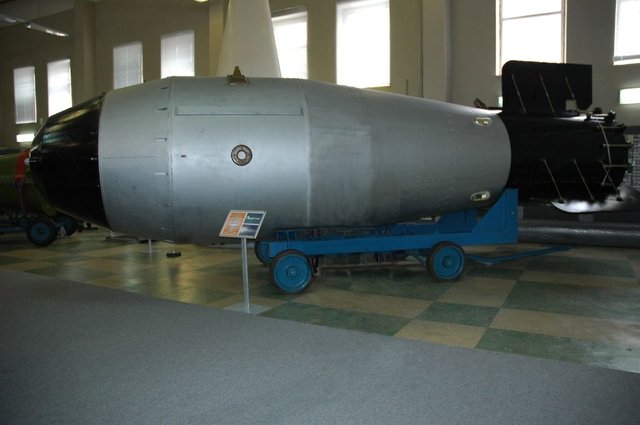
Some perspective first. Fat Man and Little Boy remain the most devastating weapons ever deployed in war. It's far to say that they were true town killers. They topped out with an explosion of 21 kilotons of TNT.
The Tsar Bomba? 57,000 kilotons. Yes, over 2,500 more explosive! The Tsar Bomba could wipe out the entire New York City. Shockwaves will be felt all the way down to Florida.
But will it destroy the planet? Not even a scratch. So what if all 16,000 nuclear warheads were deployed at once? Would that kill most humans? Possibly. Would there really be a nuclear winter? Possibly. But it'll clear away within years. Totally insignificant for a planet that has survived 4.5 billion years.
Supervolcano
Earthquakes and tsunamis can be devastating, but supervolcanoes remain the mother of all geological events. A supervolcano is one that expels over 1,000 km3 of volcanic ejecta into the atmosphere. The most violent volcanic explosion of recent times was Mount St. Helens. Think that is massive? Supervolcanoes are thousands of times more explosive!
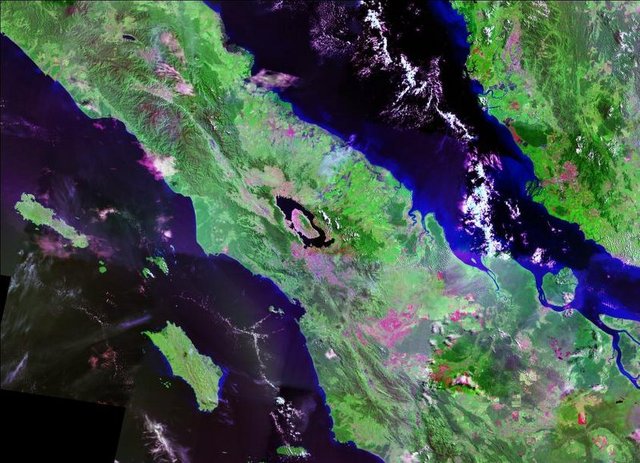
75,000 years ago, Lake Toba exploded with the ferocity of thousands of Tsar Bombas! Indeed, it created a crater that's easily visible from space.
But the real destruction is caused not by the eruption itself, but the ejecta. Toba ejected 2,800 km3 of volcanic ash, which blacked out the skies for years. This led to a decade long volcanic winter and a mini ice age that took 1,000 years to recover.
There's a genetic bottleneck for humans around the same time as the Toba eruption. While some hypotheses have suggested nearly all humans around the time died, and the species survived by the skin of its teeth, recent findings reveal that to be largely an exaggeration. Still, it did affect the ecosystem severely.
Yellowstone is due for one such supervolcano any time now. Were it to erupt, it'd destroy the entire western coast of the USA, while most of North America would have to evacuate. It'll be an epidemic that could kill a majority of the human population.
Clathrate gun
To be clear, clathrate gun is an untested hypothesis. That said, this could be the deadliest of environmental catastrophes. Methane clathrate is water ice that has trapped large amounts of methane. Methane is a deadly greenhouse gas, dozens of times more potent than Carbon Dioxide.
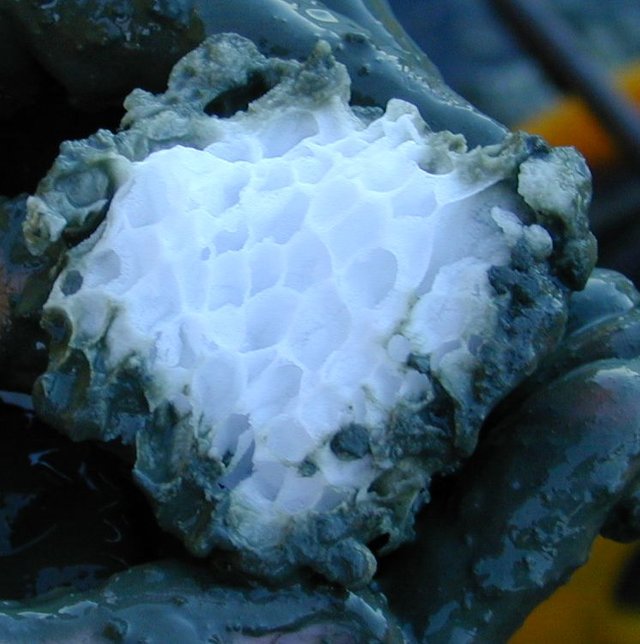
A rise in oceanic temperatures could melt away methane clathrates almost overnight, releasing dozens of gigatons of methane into the atmosphere. This could lead to atmospheric methane content increase by an order of magnitude, with a catastrophic temperature rise of 6 degrees C within a human lifetime.
This would pretty much trigger a mass extinction event and more than 90% of all species will go extinct. The human population would be severely reduced, though some humans might just survive.
The planet itself, however, will live on.
Impact event
During the early years of the Solar system, the Earth was bombarded by massive objects. Some even planet sized, one of which is hypothesized to have led to the formation of the moon. To be sure, these are true planet destroying events. Though, more accurately, they are planet forming events.
Earth experienced a barrage of massive impacts during the Late Heavy Bombardment period about 4 billion years ago. However, once the Solar System and Earth's neighbourhood stabilized, massive impact events have been extremely rare. The chance of a planet sized object hitting Earth now is negligible, as it will form an orbit of its own around the Sun.
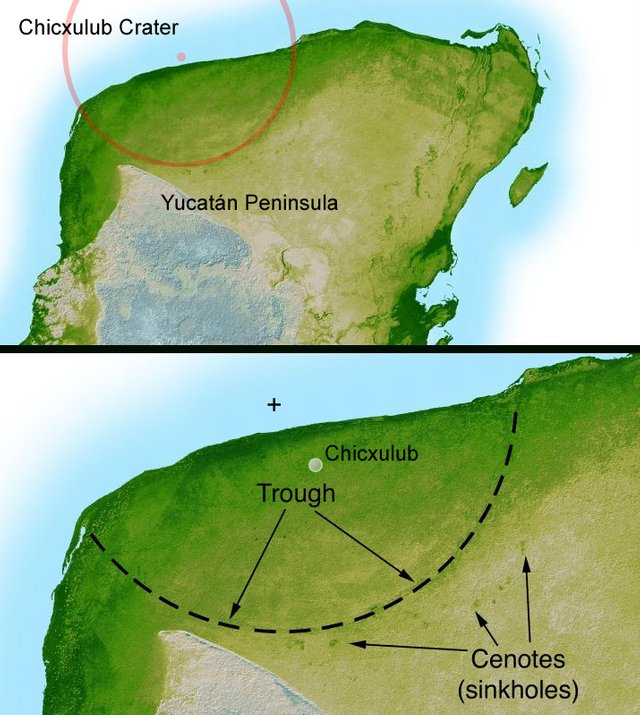
The largest impact event post-LHB is the Chicxulub impact, better known as the impactor that killed the dinosaurs. Indeed, it played a significant part in the K-T extinction event about 65 million years ago, completely disrupting Earth's geological, chemical and thus biological ecosystem.
The Chicxulub impact is an explosion worth millions of times of Tsar Bombas!
Finally, the Earth experiences a scratch. But 'tis just a scratch!
Sun goes Red Giant
Approximately 5 billion years from now, the Sun will exit the Main Sequence and start its long journey to becoming a Red Giant. The Sun's volume will increase millions of times.
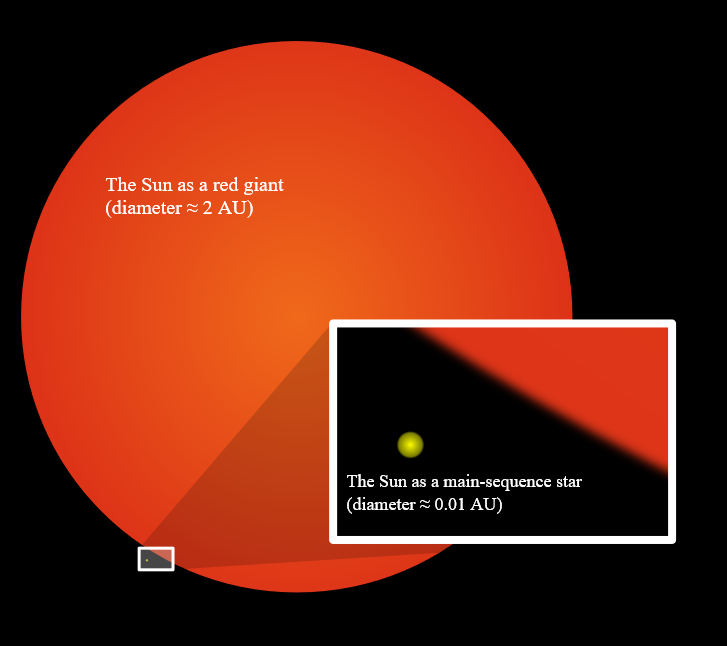
Around 5.5 billion years from now, Earth will be well and truly toast. There would be no water and it's easy to imagine there'll be no life of any kind. It'll be a hellish inferno.
Eventually, the red giant Sun might just devour the entire planet whole! Or what's remaining of it. So, there you go - a true Planet Destroyer.
Death Star
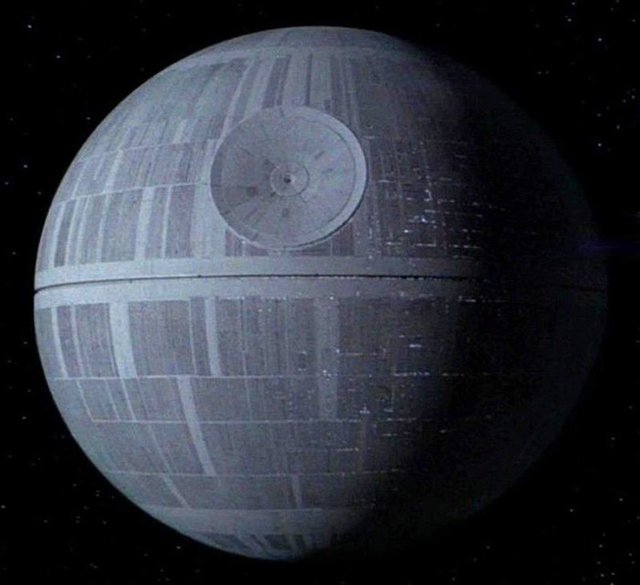
Yeah, this one wins.
Further reading -
http://www.atomicheritage.org/history/tsar-bomba
http://www.nuclearweaponarchive.org/Russia/TsarBomba.html
http://planetextinction.com/planet_extinction_clathrates.htm
http://www.ogj.com/articles/print/volume-96/issue-19/in-this-issue/exploration/hydrates-contain-vast-store-of-world-gas-resources.html
http://geology.gsapubs.org/content/31/9/741
https://web.archive.org/web/20071128093102/http://www.geosc.psu.edu/people/faculty/personalpages/tbralower/Braloweretal1998.pdf
http://www.spiegel.de/international/world/0,1518,547976,00.html
http://news.nationalgeographic.com/news/2005/04/0415_050418_chicxulub.html
https://books.google.com/books?id=tSIa0VQn1NQC&pg=PA140
http://www.atlasoftheuniverse.com/hr.html
Stickyminds.com
Images from Wikimedia.
Sounds like we are SOL :/ I laughed when I saw the Death Star.....I was think some bacteria or a disease is something that could kill off all living species.
Not sure if we could really consider it a planet if it didn't have any life?
The thing with an epidemic is they usually only affect one species or maybe a small ground of species. There are epidemics of all kinds all the time, but of course we'll only pay attention when one hits us. Our healthcare is advancing at such a rapid pace that it's unlikely to get out of control. Certainly, there'll never be another Black Death.
Of course it's a planet, life or not :)
It's certainly NOT the same planet when the biosphere is very substantially reduced, according to Lovelock- and he gathered the data to support that.
In the end, ten out of ten die.
That's a newsflash- to some people...
@liberosist
In short. That is a lot of doom. Ha. I am not worried too much though. I happen to be one of another persuasion.
Here is my prediction, if you will allow me.
No nuclear, human population wipeout anytime soon. Not in my lifetime. Ha ha
Your post gives us something to think about, but as you point out. The earth remains. And as long as earth time remains, I like the odds of some human activity on earth to also remain. So, for us, at least for me. Another happy day.
You have done well. You have clearly pointed out potential calamities.
Rest easy my friends. There is one that is in control. And it "ain't" me. lol
Thank you
Francis
Yeah, I suppose it was a lot of doom, but oddly amusing. Sure, I agree, humans are extremely resilient and aren't going away any time soon. There are major challenges ahead of us, but we'll find a way.
Many thanks for the upvotes. I am made happy today by your generosity. And you @liberosist did the work.
It takes time put together content and post it on Steemit. And the content you chose today, is ringing bells of warning for us as humans on this planet. We all need to be vigilant. Just as you have pointed out in your very good post.
Thank all of you again. "Only on Steemit," is one of my favorite phrases.
Francis
I didn't really intend it to ring alarm bells. Like I mentioned, I find it an entertaining topic, amusing even. But yes, best to be aware of what can destroy us!
Sadly the balance of the world is being kept by several buttons that just need be pressed to start the apocalypse. If you have ever played metro 2033 that's what im talking about.
Cheers for the good post and happy steeming friend, don't let the bed nukes bite xD tehehehehe nope..
Ah yes, I love Metro 2033! The next one Metro Exodus looks incredible.
I do agree sadly my ring isn't sufficient enough to handle that.
Maybe in time i can afford some upgrading with steem sbd and give it a go :D who knows what the future holds.
Cheers and best of luck friend 🍀🍻
Nice game, but very hard to play, you need fast reflexe and think fast, even with a good keyboard and mousse but, I prefer the RPG shoter game like Stalker shadow of chernobyl and the other but they never rely finish this game or made better game like that, Vidéo game industrie suck today, to much garbage game never finish, copy cat of other, no originality, boring, budget in the fucking marketing. The Only Nice RPG better than all other Game in the world is The Witcher Wild Hunt, no game existe with the Quality of this game, no one at this level of WOW
https://www.google.ca/search?sa=X&biw=1280&bih=593&q=STALKER:+Shadow+of+Chernobyl&stick=H4sIAAAAAAAAAONgFuLSz9U3MM_OyDM2V-IEsU2yTdMNtQTDMlNS890Tc1ODgYzyxMpiAEh6s6AsAAAA&npsic=0&ved=0ahUKEwiMmqSIj9fUAhWI7YMKHWcNBxYQ-BYIJA
It certainly gives you pause to think. Ours is a fragile existence at best. Very insightful post. Thanks.
It sure is! In the grand scheme of universe, very fragile and insignificant. We're here for a miniscule amount of time, so make the most of it!
It sure is! In the grand scheme of universe, very fragile and insignificant. We're here for a miniscule amount of time, so make the most of it!
How do you prepare for such tragic and apocalyptic level events? I joined Steemit today. Thanks for this great information.
We can definitely prepare for all of them.
Nuclear weapons - This is totally in our control.
Clathrate gun - Control climate change. This could get out of hand if we don't act fast. Colonizing the solar system is a good option.
Supervolcano - While there'll be some seismic activity detectable, this one's a major risk. Can erupt at any time with short notice.
Impact event - This one should be predictable. There are ways space programs could deflect the impactor away from Earth.
Red giant sun - Colonization outside the solar system.
Death start - We're screwed.
haha I love this! People are severely misinformed about the destructiveness of nuclear weapons. They are terrible things, insanely effective at killing large amounts of people (especially modern ones which are designed to create a lattice of supercharged fireballs that descend to create a "lake of fire" - or rather an area in which everything spontaneously combusts) but they cannot make humankind extinct - they could set us back a few hundred years sure, but radiation would be back to "safe" levels within a year (for modern efficient warheads).
Exactly. Nuclear weapons are destructive because we have cities.
Great synthesis and very informative! Clearly a Tier 1 post.
Hey, interesting post! Today, I had a presentation about the South China Sea in school and I also talked about Methane clathrate because there is a lot of it in the South China Sea.
Nice! You should write a post about your presentation.
Yes, I will do that. The presentation was in German but of course I will also post a English version of it.
One is missing from here. Asteroid Apophis. It will fly by earth in 2029 and 2036. Scientist believe it will not hit earth. But what could happen is trigger a massive earthquake around the world and cause tunami in my opinion. Maybe change the way the land is. You know, remember 200 million year ago earth was just one huge continent called the Pangaea, then thing went arwy due to earthquake? Who know, I could be wrong.
Apophis is a tiny fraction the size of Chicxulub. True, it could still trigger massive tsunamis or earthquakes, but hardly the apocalyptic impact of Chicxulub. Anyway, as you point out, Apophis is almost certainly going to miss Earth.
The Earth's crust is moving all the time - it's called continental drift. It's a continuous cycle of continents coming together or splitting apart. It's not some single earthquake that causes this. The last supercontinent was Pangaea, and we are heading for another one in a hundred million years' time, which some call Amasia.